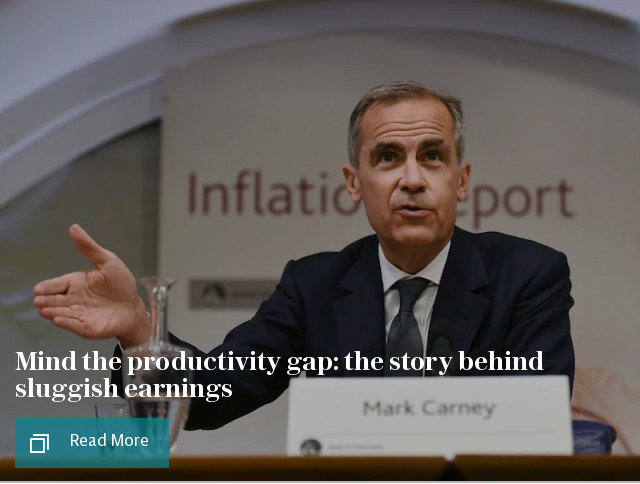Living standards to flatline for a decade as productivity drags

Britain faces another decade of flatlining living standards according to new official forecasts.
The Office for Budget Responsibility (OBR) has revised its predictions on productivity growth to further delay a return to pre-financial crisis levels.
The quango now believes it will take another 10 years for the measure to reach annual growth of 2pc.
The delay is bad news for living standards as productivity growth, which measures the economic output generated in each hour worked, brings down the cost of everyday items and boosts workers’ earnings.

It has fallen steeply since the financial crisis to below 1pc per year, making it the worst era in a century.
The forecasts are fraught with uncertainty. Only last year the OBR cut its productivity predictions as a long-anticipated rebound failed to occur.
But others see its latest negative revision as plausible. “On the assumption we don’t turn this around, then we have to live with the fact that we are in a ‘new normal’,” said Matthew Whittaker at the Resolution Foundation.
John Hawksworth, chief economist at PwC, said much growth in recent years has been fuelled by firms hiring more workers instead of investing.
Kallum Pickering from Berenberg Bank said if investment appetite returns then digital technologies can start to move into wider use. He said: “Over time other industries will incorporate that technology. As that happens, productivity should improve.”


 Yahoo Finance
Yahoo Finance 